
88.1FM
WYCE
-
or visit our secure sign-in page
sign in or sign up...
OR ...with your email address

Community Media Center

2011-08-22
Nick's Picks: 05 I'm A Man, 06 Crazy 'Bout You Baby, 07 Big Boss Man, 10 Harp StompReview of George Harmonica Smith teardrops are falling This previously unreleased "live" recording with Buddy Reed and the Rocket 88's is an attempt to introduce a much under-appreciated, but extremely talented harmonica player and compleat showman - George Harmonica Smith. I am familiar with Little Walter, but I had not heard much of this artist; however, when I checked the amount of published recordings on which he performed, this legendary West Coast Blues Harmonica had been one perpetual motion machine! He was the first harmonica player to amplify the harmonica, and he was the first harmonica player to play two notes at the same time an octave step between them ("Teardrops Are Falling", "Crazy 'Bout You Baby", "Goin' Down Slow") - a difficult maneuver often attempted, seldom accomplished by many except the extraordinary (Larry Adler, Rod Piazza, William Clarke). He held such a high regard for Little Walter that he recorded few solo albums; however, as mentioned previously, that didn't affect his collaborations with great blues legends - Muddy Waters and Big Mama Thornton come to mind. George Smith’s chromatic playing style has impacted the modern-day approach to blues chromatic playing more so than any other traditional blues harp artist’s style, even including Little Walter’s. His mother was his initial musical influence ("I'm A Man" seems ,almost prophetic), and the blues world is so much better for that. George Harmonica Smith was not one to hog the stage (humility is a mark of a true blues talent), and he would take great delight in "playing off" the other talents in whatever band he was in (Buddy Reed's guitar in "Big Boss Man" and "Woke Up This Morning"). This live recording took place shortly before his death, so I am fortunate to be able to review some of his last works. Lastly, I must confess I'm not much for instrumentals, but the last cut ("Harp Stomp") on this cd really got my foot tappin'. And that's my two nickels' worth.......................Nick. FCC ALERT: "Clean" ARTIST BIO: Welcome to the official George "Harmonica" Smith tribute page. Allen George "Harmonica" Smith was born on April 22, 1924 in West Helena, Arkansas. His family moved to Cairo, IL soon afterward, where he was raised. Starting harp at a young age under the tutelage of his mother, George played at local parties, juke joints, and in the streets. By his teens, he moved away from home traveling through the south. 1949 saw George move to Chicago where he started working with a young Otis Rush, both playing in a style similar to the Muddy Waters band at the time. In late 1954, the blues harmonica world would never be the same after "Little" George Smith recorded his landmark records on the RPM label. Classics such as the chromatic masterpiece "Blues In The Dark", the slow third-position techniques of "Telephone Blues", "Oopin' Doopin' Doopin'" which featured some more swinging chromatic harp, and "Blues Stay Away". Third position on chromatic and diatonic harmonica has been done before, but nothing like this. Little Walter, the unofficial king of blues harmonica, had played third position on chromatic and diatonic harmonica, but his techniques were different. George made full use of the harmonica's tuning by his incorporation of the use of playing "octaves", especially on the chromatic. George took his blues influences and met them with his other harmonica influences (he often cited Larry Adler as his favorite) and ran with it until he developed his own approach to tone and phrasing. Besides his classic RPM sides "Blues In The Dark", "Oopin' Doopin' Doopin'" and "Down in New Orleans", other chromatic features of his include "Hawaiian Eye", "Blue Fog" and "Soul Feet". His mastery of the chromatic harmonica influenced every blues player that has picked up the instrument since, either directly or indirectly, arguably even more so than Little Walter's chromatic technique. The late 1960's saw George coming into the spotlight a bit more after a quiet period in the early/mid 60's. Contemporary players like Charlie Musselwhite and Rod Piazza would learn as much as they could from George, and Rod even would perform in the band Bacon Fat along with George. Several great albums came out of this period, including "Tribute To Little Walter", "...of the Blues", "Arkansas Trap" and "No Time For Jive". In the 1970's, another young harp player came into George's life that would go on be another of his greatest students - William Clarke. For the remainder of his life, George continued to perform with his band, as a sideman, or with one of his protégés, and made some great recordings even in the 70's and 80's. His influence can still be heard in the playing of the top harp players on the contemporary scene, such as Rod Piazza, Kim Wilson, Rick Estrin, Paul deLay and Mark Hummel. The Band: George Harmonica Smith: Vocals, Harmonica Buddy Reed: Guitar, Vocals Jerry Smith: Bass Roger Rotoli: Drums Bullet Bill Tarsha: Harmonica The Songs: Intro By Spider Teardrops Are Falling Love That Woman Key To The Highway I'm A Man Crazy 'Bout You Baby Big Boss Man Juke Going Down Slow Woke Up This Morning Harp Stomp
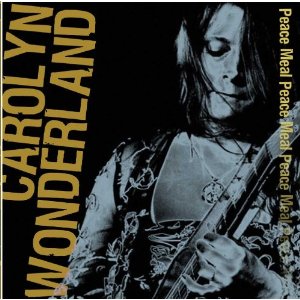
CAROLYN WONDERLAND
PEACE MEAL
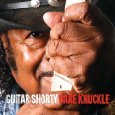
GUITAR SHORTY
BARE KNUCKLES
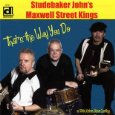
STUDEBAKER JOHN'S MAXWELL STREET KINGS
THAT'S THE WAY YOU DO

CHARLES WILSON
Troubled Child
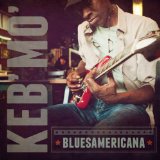
Keb' Mo'
BLUESAMERICANA
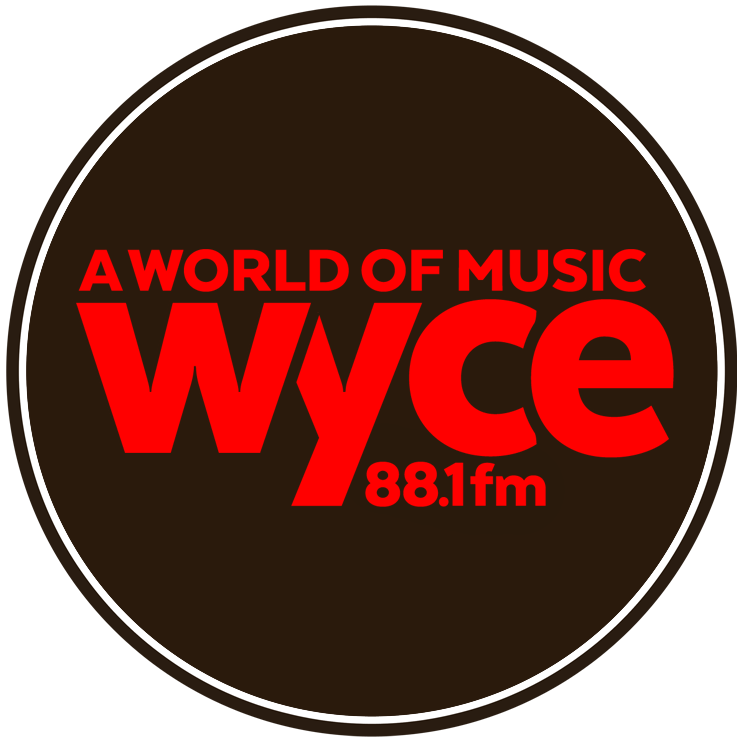
SAMUEL JAMES
THE RETURN OF SUGAR SMALLHOUSE
The opinions expressed in these reviews are those of the individual volunteers that submitted the article and do not necessarily reflect the views of WYCE or GRCMC; nor its staff, donors, or affiliates.